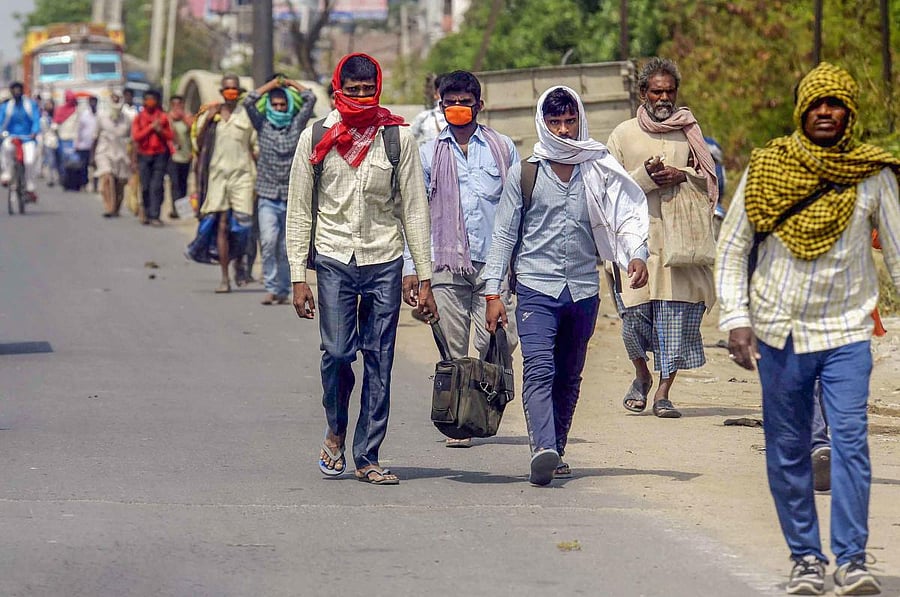
A survey among migrant workers spread across eight states has revealed that 53% were laid off during the ongoing coronavirus lockdown announced on March 24, while 60% were in urgent need for assistance, mostly food, as they were left with resources that would barely last a week.
The highest job losses were reported from Tamil Nadu’s Tirupur, one of the major textile hubs of the country, where a “vast majority” reported that they were laid off, followed by Ahmedabad, the survey carried out by Gram Vaani, a social technology company incubated out of IIT-Delhi said.
The survey reached out to 752 respondents across eight states and found that 57% of those who lost their jobs were not paid their full wages, most such complaints originating from Ahmedabad and Gurugram in Haryana.
“I am from Madhya Pradesh, my factory in Tirupur has been closed, I want to go back to my place but because of lock down, trains are not running, I am facing great difficulty in arranging for my food,” a worker from Madhya Pradesh stranded in Tirupur said.
Gram Vaani’s Saajha Manch network seeks to help migrant workers share information and create awareness about their rights and entitlements. This network was activated to carry out a survey to understand how they were coping with the lockdown.
A total of 752 responses, more than 50% workers wanted to go back to their places of origin and were even willing to pay for their transit.
“Me, my wife and three children are stuck in Maharashtra, I am out of work from 21st March and we do not have any money left to sustain ourselves,” Luvkush Saini, a labourer stranded in Maharashtra, was quoted in the results of the survey released by Gram Vaani.
The survey was conducted over a span of 18 days and the responses divided into two time period, to understand whether the need for urgent assistance (particularly food) had settled over time.
“Respondents in the later time period, 8th-14th April, had even more demand for urgent assistance, than respondents in the earlier period, 27th March to 7th April,” it said.

